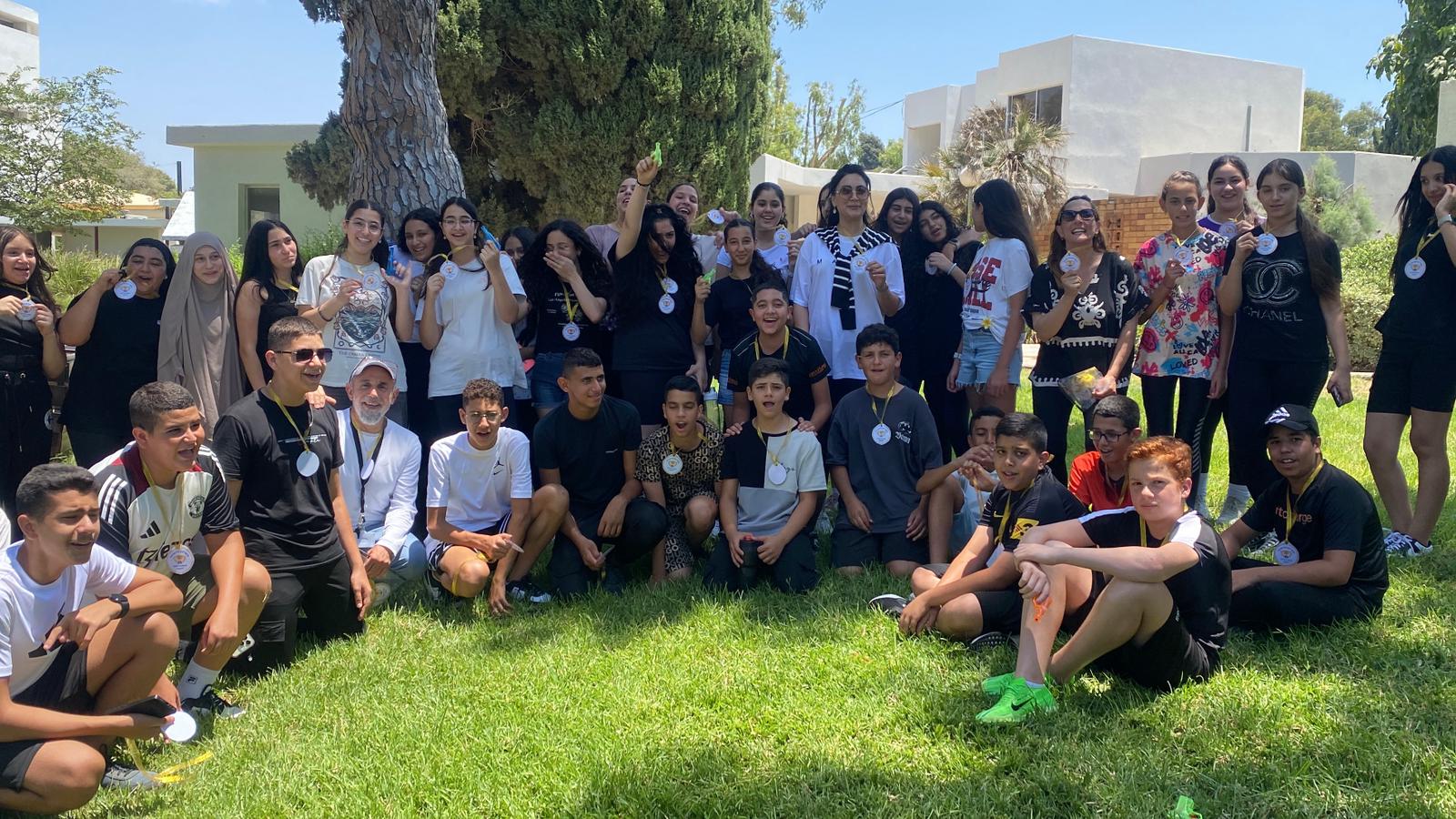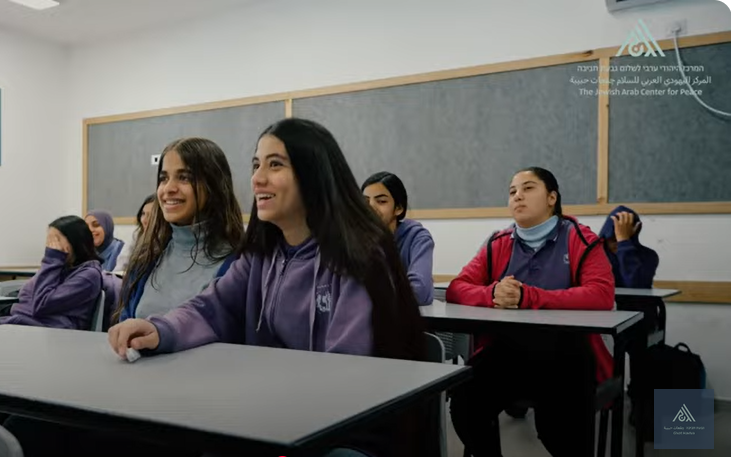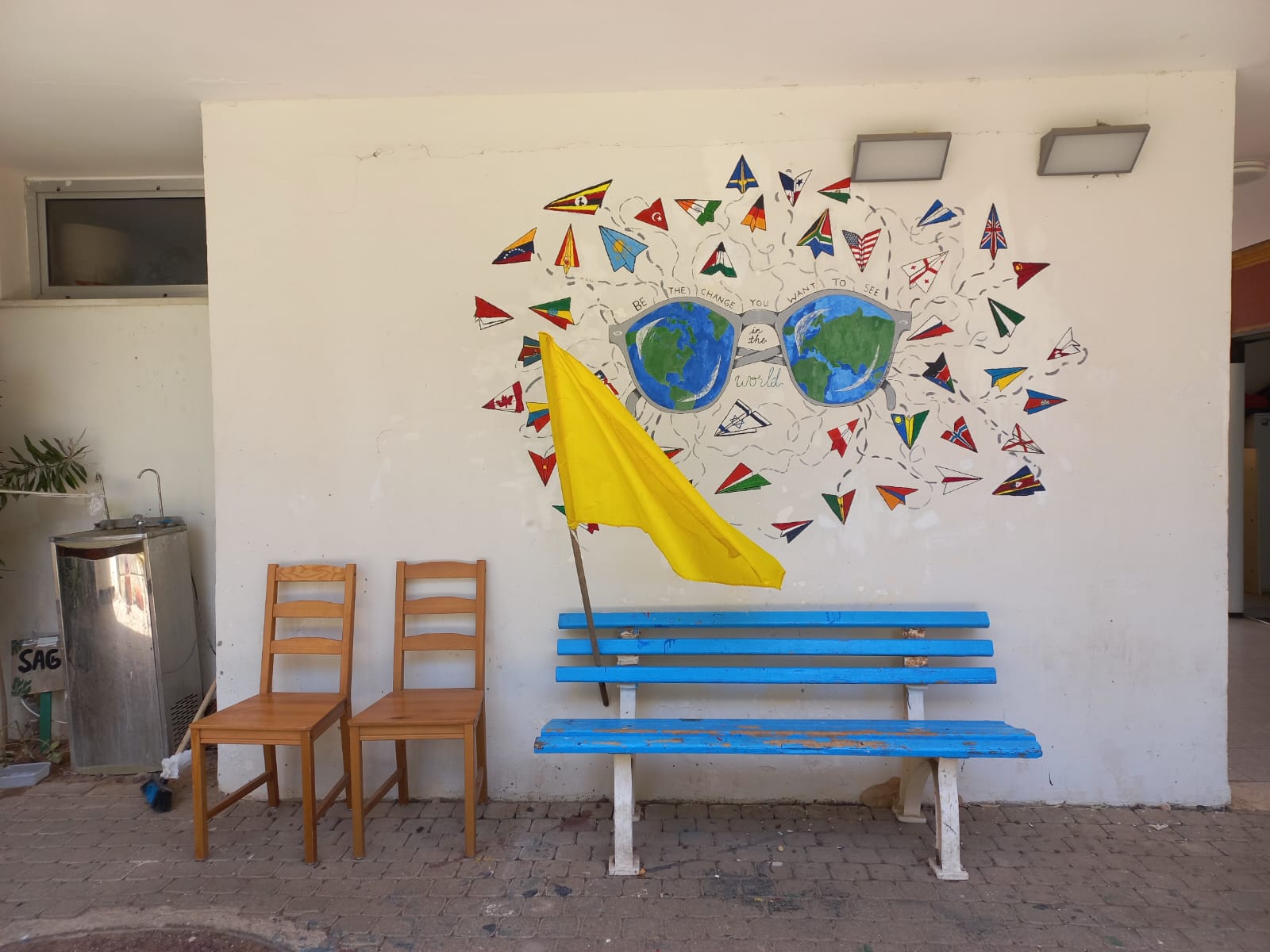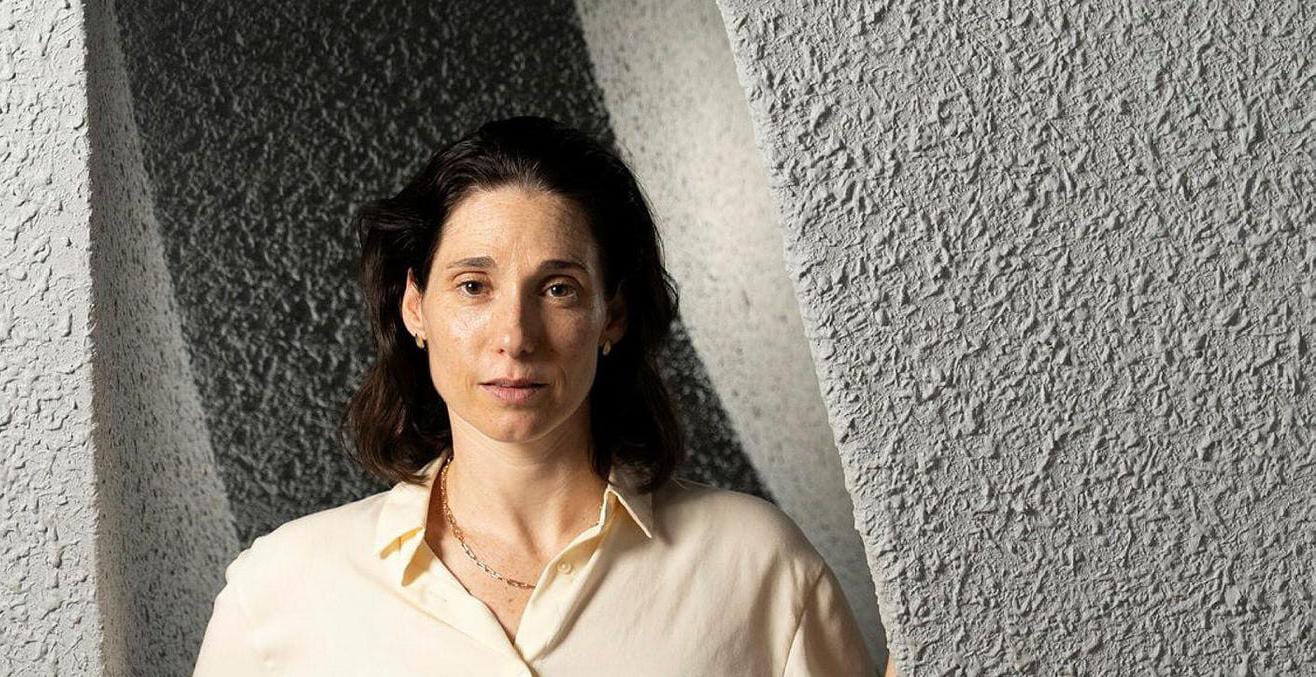“My family owns a supermarket, and there are also Jewish customers and suppliers, and I have to know Hebrew to speak with them,” says Sadan, an eighth-grader. “At first I was shy, but now I’m much more confident, and even get up and speak Hebrew on stage. I want two things: for the war to end, and for my Hebrew to be so good that I feel confident speaking it everywhere,” Sadan adds.
Sadan is one of 120 children and teenagers from J’dida Makher and Jisr a-Zarqa who spent their vacation participating in unique summer camps to learn and practice Hebrew, in order to start the school year fluent in spoken Hebrew. The camps were held at Givat Haviva, in the localities themselves, and at Kibbutz Ein Shemer, where the children cooked, made arts and crafts, played, sang, and played sports – all in Hebrew. The content was delivered by teachers from the “Shared Language” program, who teach Hebrew in schools during the year and specialize in teaching the language in a friendly and enjoyable way.
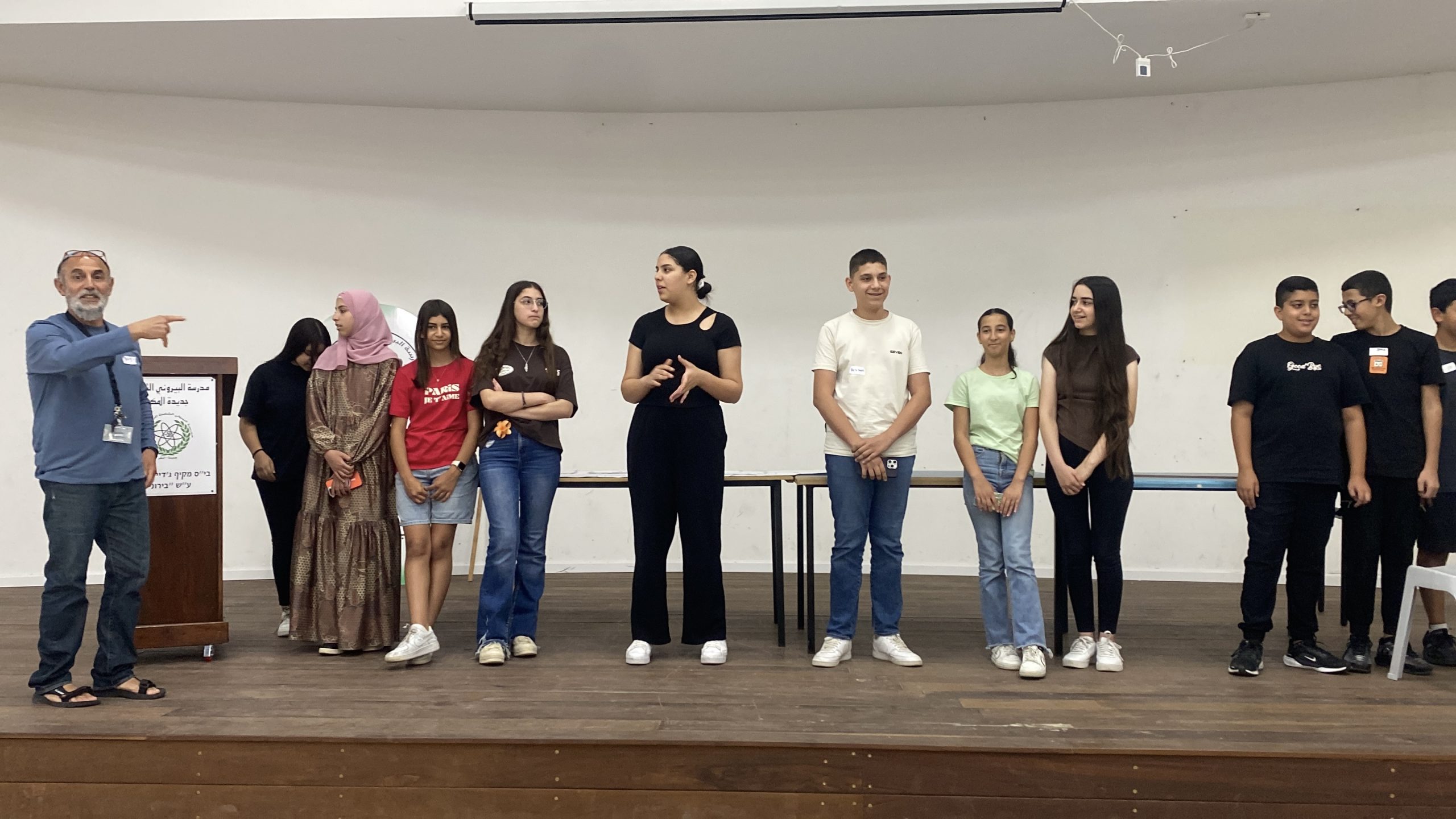
The initiative to open the camp came from the understanding that Hebrew studies in Arab schools are not sufficient to enable children to converse with Hebrew speakers. For them, mastery of Hebrew is not just a communication tool – but a key to integration and future opportunities.
Mohammed, an eighth-grader, plays soccer on a team in Nahariya where everyone speaks Hebrew except him. “I had no choice but to learn Hebrew, so that I could understand them and they could understand me. I feel like I have a knack for languages, and it’s clear to me that Hebrew is necessary for me to be able to leave the village and work elsewhere, so it was also very important for me to come to the camp,” he explains.
“Arab children and Jewish children don’t meet enough,” Mohammed adds. “If there were more meetings, both sides could practice the other’s language more – and perhaps also bridge a lot of misunderstandings.”
While many Arab children recognize the importance of Hebrew and seek opportunities to learn and improve, the linguistic gap between Jews and Arabs in Israel is two-way – most Jewish children and adults do not speak Arabic, despite it being an official State language. This creates a situation in which the burden of communication falls primarily on the Arab speakers. Initiatives like these camps attempt to bridge this gap, but the social and political complexity makes it difficult to develop a true two-way dialogue.
“We opened this camp after realizing that many Arab children and teenagers want to learn Hebrew,” says Michal Sella, CEO of Givat Haviva. “This learning, in a positive and enjoyable way that brings friends closer, is a necessary springboard for them. This is the only way they will they be able to realize their potential in school, academia, the job market, and in leadership roles.”
Tamar Trabelsi’s article on YNET (Hebrew) – here


